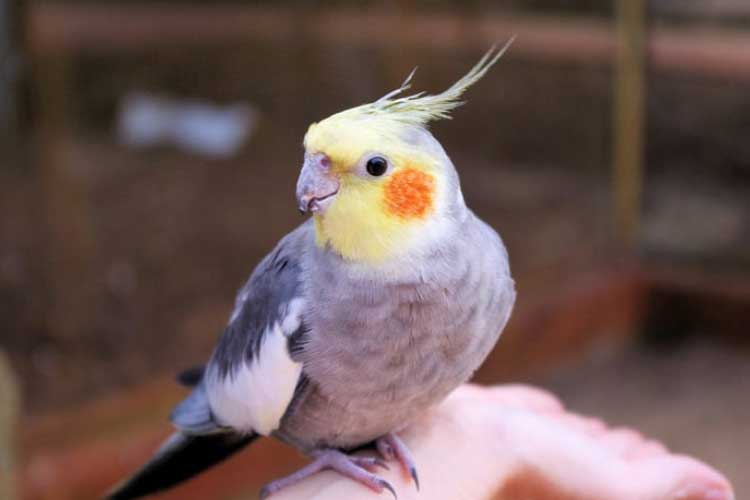Cockatiels are among the pet birds who learn and like communicating. When happy, they whistle, mimic, grind their beak, and fluff their feathers. However, behaviors like hissing and biting still frustrate most people, especially new pet owners.
So, why is cockatiel hissing and biting? A cockatiel will hiss and bite for many reasons, including fear, anger, or being territorial. The biting will mostly happen after a hiss, which serves as an early warning. It is best to find a solution sooner before they develop a habit.
Sometimes it becomes confusing to understand some pets’ behavior, especially if they are being aggressive. In this article, you will learn about cockatiel’s hissing and biting habits and why it happens.
Why Does My Cockatiel Hiss and Bite?
Like many birds, cockatiels use their beaks for many activities, including using them as hands for climbing. Most of these activities are okay, but when the bird hisses or bites, it means something is wrong. Below are some possible reasons your pet bird might be hissing and biting you.
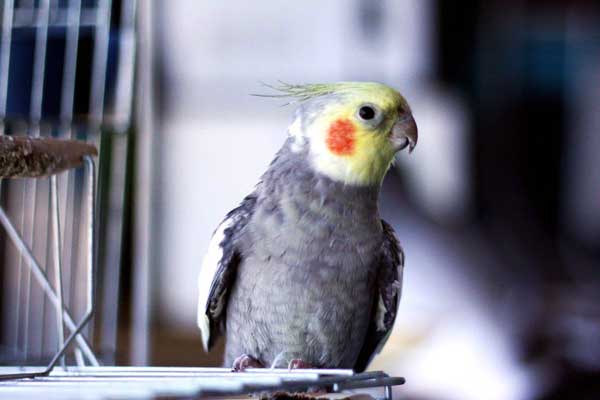
1. Fear
Back in mainland Australia where cockatiels are naturally found, they’re prey to predators like hawks and eagles. In captivity, their first instinct when threatened by a foreign object or person is to hiss as a warning. If this warning is not heeded, the birds will bite in an attempt to defend themselves.
2. Territory
Cockatiels are territorial birds that can be attached to things like their cages, toys, and also their caregiver. If their personal space is invaded, especially their roosting place, the birds will become aggressive to the invader. These avian pets will also hiss and bite each other for dominance.
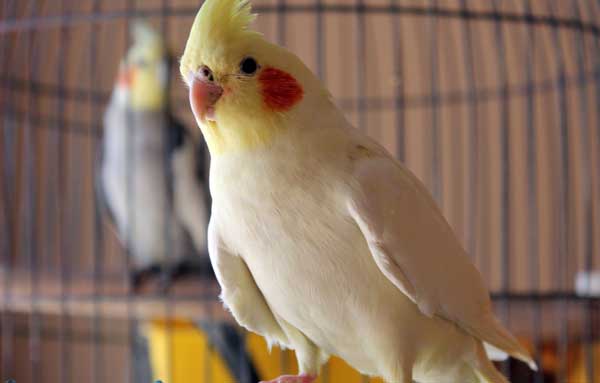
3. Breeding
Cockatiels exposed to a decent amount of natural light will be able to breed before they’re one year old. During this time, the female cockatiels will be more aggressive if you come near their nesting place. Male cockatiels will also bite during this period since they stick around after mating to protect the young ones.
4. Mood
Like most animals, cockatiels get different moods like anger or boredom. Other ways to determine a cockatiel’s mood include looking at its head crest and wings. When in a bad mood, the bird will nip and bite your finger if you pet it.
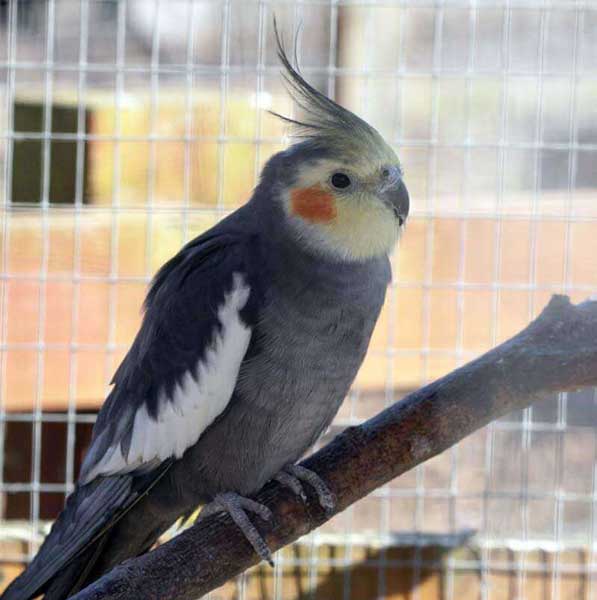
5. Fatigue
Your budgie will bite you when fatigued. If it has not rested or had enough sleep, do not try playing with it. Instead, get it back into the cage and leave. Also, don’t wake it from sleep when resting. It may wake up angrily and bite you.
A playful pet will also nip on your fingers to get your attention. When playing, you should frequently rub their head, something that male cockatiels in particular enjoy. Sometimes, these pets bite if they are hungry or when they haven’t eaten enough.
Why Is My Newly Adopted Cockatiel Hissing?
A new cockatiel will hiss to warn you off since you’re a stranger to it. The pet might also be expressing discomfort or fear of the new environment. If you added the pet to a cage that already had another, the hiss might be warnings to the other pet.
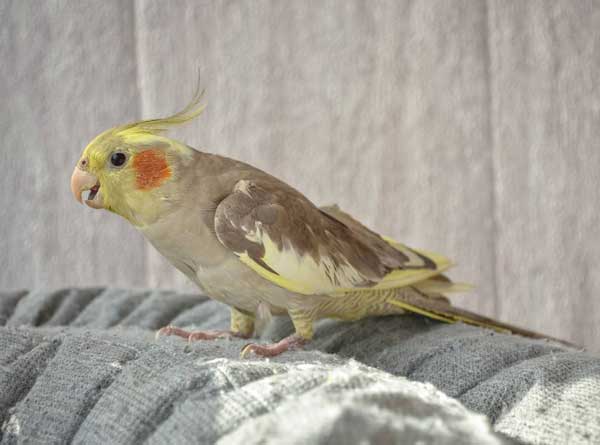
It’s common for new pets to be defensive and aggressive to their adopters. Most times, the way they act is determined by their previous environment and also their character. Every new pet needs to bond with its new owners before it can trust them.
How Do I Stop My Cockatiel from Biting?
You must first determine why the bird is biting to provide the right solution. Sometimes this will be a playful gesture accompanied by a joyful whistling. However, some habits go on for some time, and the following solutions will help try to stop them.
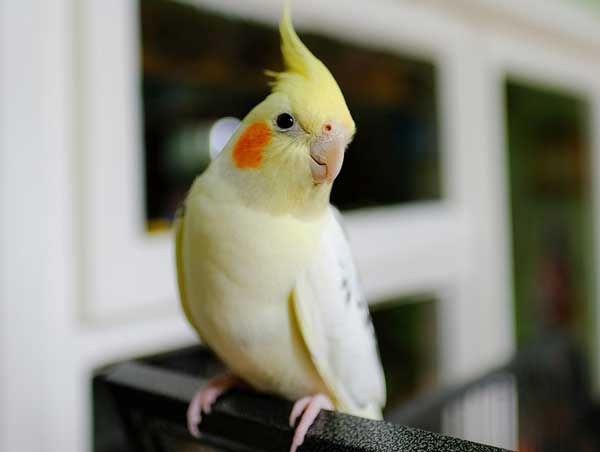
- Bond – Bonding is crucial, especially with new pets. After familiarizing yourself with your pet, it will be less likely to bite you as it would a stranger. The bonding process takes time and patience, but it’s a worthy effort since you will be able to determine future problems.
- Change its environment – Changing the bird’s environment can help solve your cockatiel’s attachment to items like its cage and toys. Territorial aggression can also be between two pets, which you can solve by placing them in the new bigger cage at the same time.
- Approach it gently – Startling your avian pet will make it bite you. Approach it gently while calling its name to make it feel safe and comfortable. Avoid banging its cage door, which also startles it.
- Don’t put your hand in its cage abruptly – Even if you are used to your pet, if you push your hand in its cage unceremoniously, it will bite you. Place the hand gently and wait for it to hop on it so you can take it out.
- Feed it enough – If you suspect your bird’s biting habit is due to hunger, you should check its diet. Feed your cockatiels enough food, and feed them enough. A mature cockatiel can take up to 40 grams of seeds and pellets to be satisfied.
- Place the cage higher – placing them higher will give them a feeling they’re on a tree. This will also mean they see your face before your hands, which boosts their confidence.
- Distract it with toys – If your cockatiel is using your fingers to play, you can add new toys to its cage. They like colored toys with movable parts and also appreciate chewing wood.
Understanding your budgie is the most important thing. You should know how they respond when distressed, happy, and when hungry. Whatever the reason for biting, you should resolve it in the above ways. You must also become strict and tell your budgie a stern no to prevent this behavior from becoming a habit.
Does Feather Clipping Help Calm An Aggressive Budgie?
Male parakeets especially can develop an exaggerated sense of pride. Mostly this happens when they have overgrown flight feathers. These feathers build excess confidence in the budgies, such that they overlook any training you had taken them through. If your fully flighted male budgie won’t hear any of your training and keeps biting you, this may be the problem.
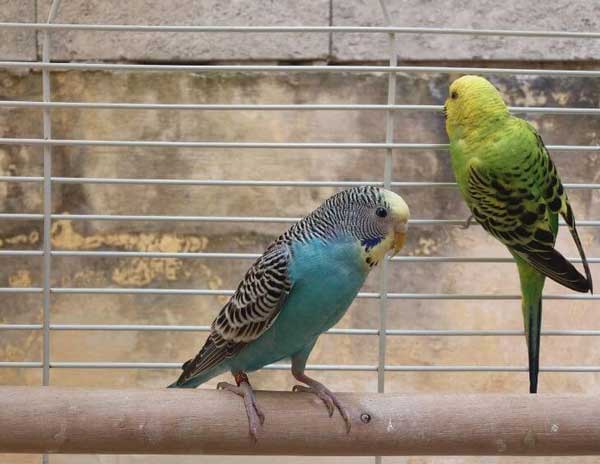
Once you identify this is the issue, you should contact your avian veterinarian for clipping. Remind them not to overdo it because you still want your pet budgie to enjoy flying around. A minor clipping will remind the bird that it is not entirely in charge, and it may help tone down its aggressiveness.
But, you should only do this after you have tried all the other options we talked about. Remember, after clipping, the feathers will molt and regrow, so it is only necessary when it affects your budgie’s behavior. You don’t want to take your budgie through all that, yet they are experiencing hormonal issues.
FAQ
In the quest to understand some of your pet’s behaviors, there are many questions you need to be answered. These questions are meant to clear specific doubts, like why and how to remedy these habits. The following are some of these frequently asked questions and their answers.
Baby cockatiel hiss out of excitement. This excitement comes from happiness if you spend time with them or feed them by hand. So baby cockatiel’s hiss or such type of sound should be a cause of your anxiety.
Most times, hissing is a warning from your pet to you or anything else posing as a threat. The best way to get it to stop is by removing this threat. If you’re the threat, you should bond with your cockatiel to get it used to you and be less hostile.
Cockatiels experience night frights more commonly than other avian pets. These birds are easily flustered by night sounds, which sometimes make them hiss. Since they don’t roost in the open at night, cover their cage to simulate a nest and to make them feel more secure.
Budgies have many developmental stages, and it may reach a point where they start biting as they hiss. As a careful budgie owner, the best thing would be to tame them and discourage the behavior. Failure to contain the situation may become a major problem when it becomes a habit.
Outro
Cockatiels are among the most popular pet birds in many parts of the world. Their traits include whistling and talking, which they use for communication. However, sometimes the birds will hiss and bite you, a confusing habit to many new pet parents.
Since there is more than one reason for them to hiss or bite, it’s best to investigate this behavior. Sometimes, bonding with your cockatiel will solve half the problem since you will be able to decipher some of their actions more comfortably. Hope this article has aided you in determining the reason and the solution for your bird’s habit.
